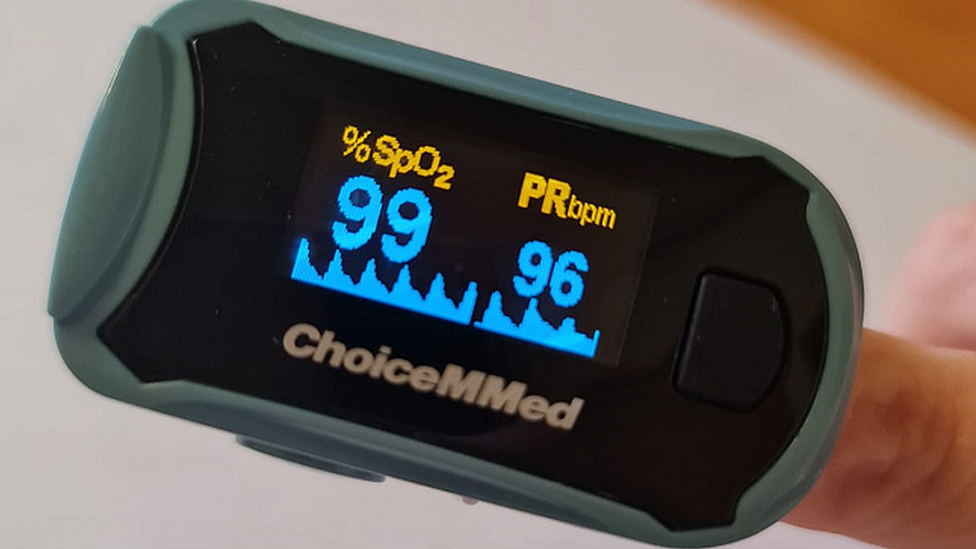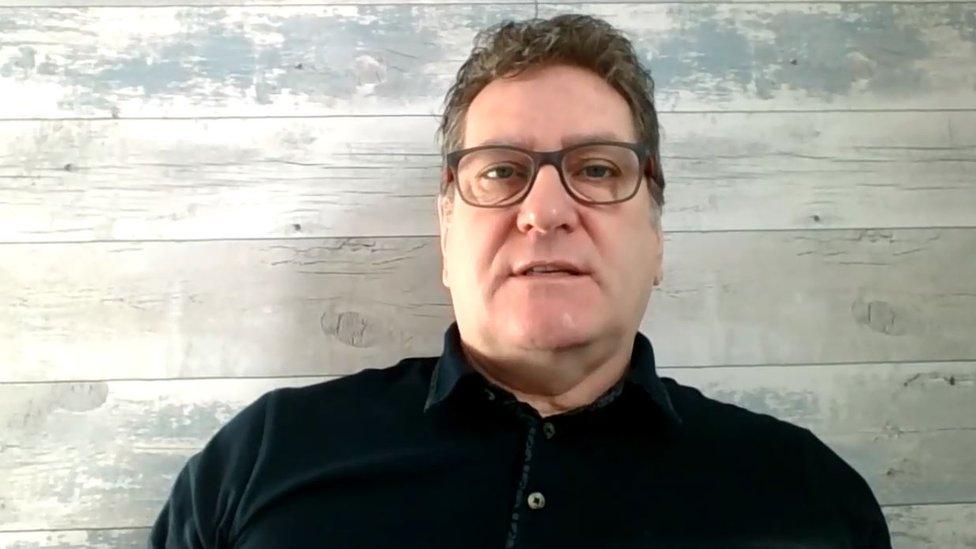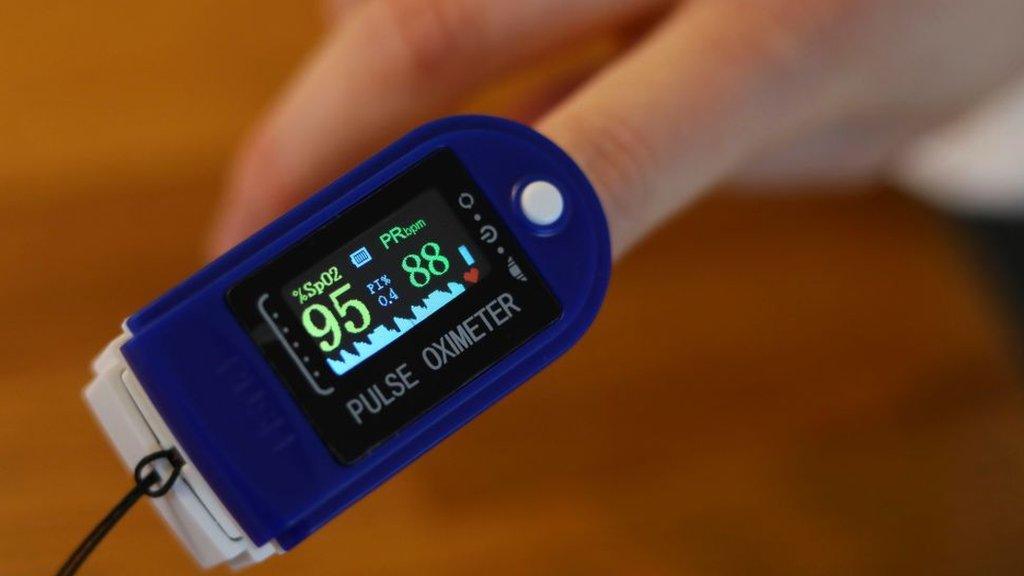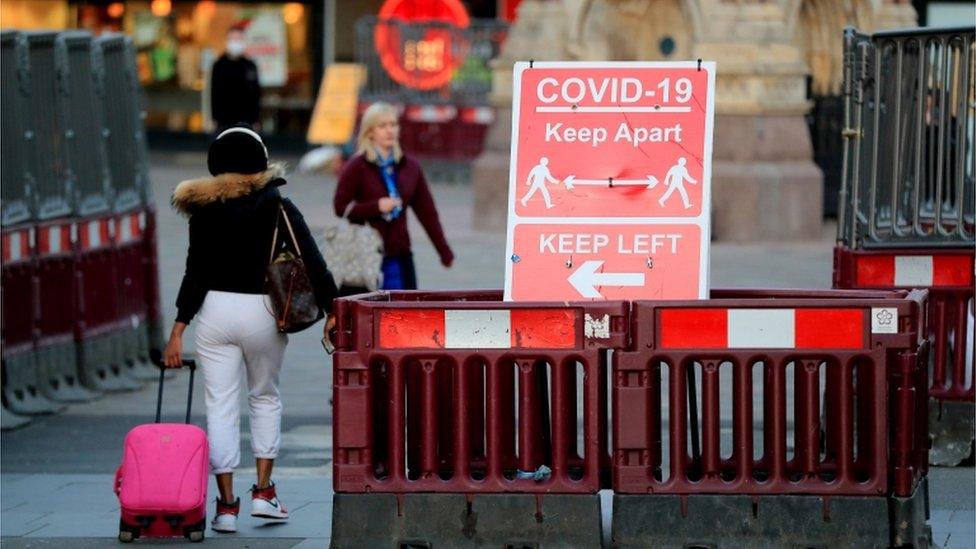Covid: Device aids 'virtual' treatment of Leicester patients
- Published

Patients on the "virtual ward" are given a blood oxygen monitor to take home
A hospital is using so-called "virtual wards" to treat coronavirus patients and ease pressure on beds.
University Hospitals of Leicester Trust said a small blood oxygen monitor meant it had treated 130 people at home.
Patients take their own readings and are checked daily over the phone by a specially-trained nursing team.
Andy Darcy, who fell ill in December and spent a night in hospital before moving on to the virtual system, said it was "really beneficial".
Patients are initially assessed by Glenfield Hospital's clinical decisions unit to see if their symptoms meet the criteria for virtual treatment.
Those who are willing and deemed suitable are then sent home with an oximeter which gives instant oxygen saturation readings - one of the key indicators of a Covid positive patient's condition.

Mr Darcy said the virtual hospital allowed him to feel "more comfortable" during his recovery
The trust said the "ward", which can contain between 20 and 30 patients, was first set up in October.
Respiratory consultant Dr Daniela Cristea-Nicoara said: "Coming into hospital at the moment is something patients want to avoid.
"A ward this size in hospital would require a high number of staff members but this can be managed daily by just five specialist nurses."
Dr Cristea-Nicoara said the system offered "high-quality" care, even if a patient's condition deteriorated.
"Based on the daily assessments we can make a decision on whether the patient needs to come back to hospital or whether they need more advanced treatment like being put on oxygen," she said.
Mr Darcy, from Elmesthorpe in Leicestershire, first went to hospital on 14 December with chest pains and was diagnosed with coronavirus.
He said: "I was kept in overnight and then kept on a ward all day the next day.
"I was then discharged later that evening with an oxygen meter, a thermometer and some paperwork to tell me all about the virtual ward."
During his daily calls with a nurse he was asked about his symptoms, temperatures, oxygen levels and was guided through some breathing exercises.
Positive feedback
His oxygen levels dropped to a worrying level and he was asked to return to hospital where he was diagnosed with pneumonia.
He was there for three days before being discharged back to the virtual hospital ward with a care plan.
He said: "It was really beneficial, not just from my point of view but for the hospital as well, because you could see they were really stretched.
"It meant I felt more comfortable and probably helped my recovery a little bit as well."
Dr Cristea-Nicoara said patient feedback gave 90% satisfaction for the system and a second "virtual" Covid ward had just been set up.

Follow BBC East Midlands on Facebook, external, on Twitter, external, or on Instagram, external. Send your story ideas to eastmidsnews@bbc.co.uk, external.
Related topics
- Published21 January 2021

- Published17 November 2020
